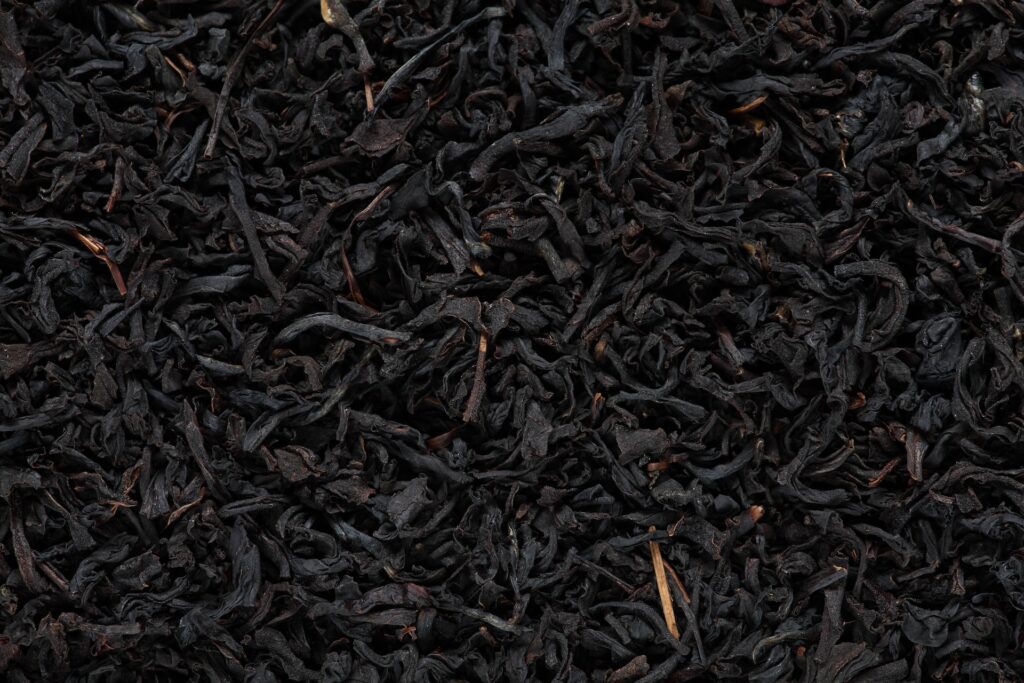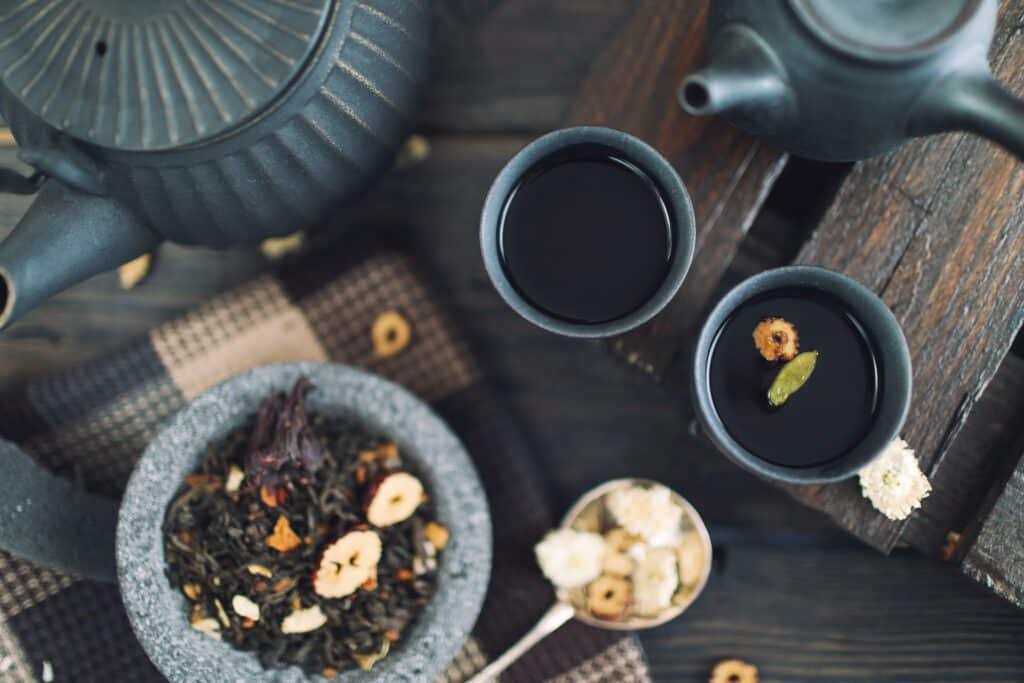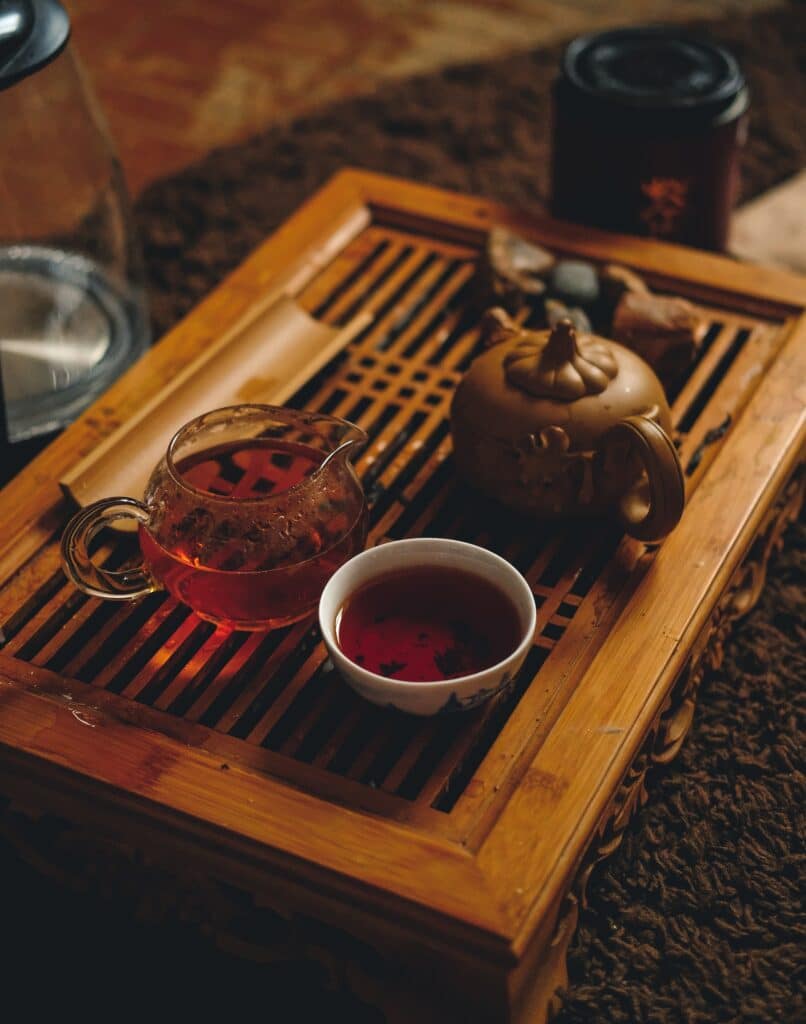For centuries, black tea has been used to battle ailments ranging from irritable bowel syndrome to headaches and even diarrhea. With all the changes black tea makes to your body, one might wonder if black tea causes constipation.
The answer, simply, is no. It is believed by consumers that, just like herbal teas, black tea may help relieve constipation symptoms due to its high mineral content and natural active ingredients like caffeine and tannins. In certain cases, drinking black tea is beneficial for irritable bowel syndrome patients.
However, due to the diuretic effect, drinking too much black tea can negatively affect the digestive system. Thus, always consume a safe amount of black and other herbal teas to get the maximum health benefits.
Does Black Tea Cause Constipation
Despite the potential benefits of drinking black tea, many people worry about whether it can cause constipation. In short, we can say that its effects may vary from person to person, depending on how they live and what they eat.
People with a physically active lifestyle will say that black tea can relieve constipation. On the other hand, if the consumer is dehydrated or already suffering from chronic constipation due to any medical condition, it will be said that black tea does not treat constipation.
Thus, all you need to know is that black tea does have a mild enough laxative effect that helps prevent constipation and strengthen your digestive tract. However, overconsumption or inadequate hydration may lead to digestive issues like constipation. If you want your cup of comfort without any unintended consequences, moderation is key.

How Black Tea Affects Digestion
While black tea has been linked to positive effects on digestion, drinking too much or having a sensitivity to caffeine and other components found in the beverage could potentially have adverse impacts.
Therefore, it is important for individuals who enjoy this popular drink to consider their individual needs before indulging. Here are some potential effects:
- Stimulates Digestion
Black tea contains caffeine and other compounds that can stimulate the digestive system, helping to increase bowel movements and promote regularity. Therefore, you can improve your digestive health with tea. The polyphenols and catechins present in black tea can help reduce inflammation and ease the bowel movements of consumers. Additionally, the hot water used to brew the tea acts as a mild laxative and helps to relax the digestive muscles, which can provide constipation relief.
- May Cause Heartburn and Acid Reflux
Black tea is acidic and may irritate the lining of the stomach and esophagus, leading to heartburn and acid reflux in some individuals. If you experience chest discomfort or indigestion after drinking black tea, it may be a good idea to switch to another beverage and see if the symptoms improve. It is important to keep in mind that everyone is unique, so what works for one person may not work for someone else.
- It May Decrease Nutrient Absorption
Although some enjoy black tea with meals, studies have suggested that tannins present in the beverage can actually inhibit the absorption of essential vitamins and minerals. To ensure you get all your nutrients without sacrificing a beloved ritual, it is best to drink hot or iced black tea before or after eating instead of during mealtimes.
- May Cause Dehydration
Black tea has the potential to be a natural way of helping you flush out your system. This way, black or green tea can cure many digestive and kidney diseases by promoting a better excretion of uric acids. Some people believe that the diuretic behavior of black or herbal tea can make constipation worse. However, if you drink enough water with your black tea intake, you can experience the laxative effect of tea leaves.
Instead, if you consume it in excess, it can backfire and leave you dehydrated. Combining with other diuretics such as alcohol intensifies this effect, making for an even more potent dehydration experience.

Does Black Tea Prevent the Absorption of Iron?
Yes, black tea can inhibit the absorption of iron. Black tea contains tannins, which are natural compounds that can bind to iron and prevent its absorption by the body. When you consume black tea with meals or iron supplements, the tannins in black tea can reduce the amount of iron the body absorbs.
However, the extent to which black tea affects iron absorption depends on several factors. The amount of black tea you consume, your iron status, and the presence of other dietary factors can enhance or inhibit iron absorption.
To get the most iron in your body, don’t drink black tea when eating food or taking iron supplements. Moreover, eat foods that help you absorb more iron, like fruits and vegetables with lots of vitamin C. Individuals with iron deficiency or anemia may also want to limit their consumption of black tea and other tannin-rich beverages to optimize iron absorption.
What to Do if You Are Experiencing Constipation After Drinking Black Tea
If you find yourself feeling constipated after drinking black tea, there are certain things you can do to help your digestive system. The first thing you should do is try cutting back on or eliminating it from your diet. Try switching to a different type of tea or reducing the strength of your brew. Moreover, try increasing your water intake throughout the day. Drinking more fluids helps move food through the digestive tract faster and encourages regular bowel movements.
Additionally, increasing fiber-rich foods in your diet is key to improving digestion. Eating fibrous fruits and vegetables like apples, celery, and cabbage can naturally soften stools and relieve constipation. Lastly, ensuring enough physical activity throughout the week can help combat difficulty with elimination by keeping everything flowing properly.
If these steps do not relieve your constipation, try a gentle laxative. However, it is essential to talk to your doctor or a pharmacist before using a laxative, especially if you have any underlying health conditions or are taking medications.
Herbal Teas Other Than Black Tea to Relieve Constipation
As already mentioned, tea can work wonders for your digestive health. Several types of tea can be effective in relieving constipation. If you have constipation, try these teas:
- Herbal Laxative Teas
Herbal teas such as senna tea contain natural laxatives that can help stimulate bowel movements and relieve constipation.
- Ginger Tea
Ginger has anti-inflammatory properties that can help soothe the digestive system and promote bowel movement.
- Peppermint Tea
Peppermint tea can help relax the muscles in the digestive tract. As a result, you will notice that passing stools becomes easier after consuming tea.
- Chamomile Tea
Chamomile tea has a calming effect on the digestive system and can help relieve constipation caused by stress or anxiety.
Herbal teas are a great way to provide temporary relief from constipation. However, consulting with your doctor is essential for truly effective and lasting solutions. Talking to healthcare professionals could help you get below the surface of the problem and create an individualized plan that best suits your needs. Moreover, by adding honey and increasing fiber intake to your diet, you can promote the laxative properties of herbal teas.
Common Causes of Constipation
Several factors might result in constipation, including:
- Low-fiber diet
- Dehydration
- Inactivity
- Stress
- Medications
- Medical Conditions
- Pregnancy
- Aging
- Ignoring the Urge to Go
While many reasons contribute to constipation, don’t hesitate to seek a medical expert’s opinion if it persists.

Ways to Prevent Constipation
If you are looking for ways to prevent or reduce constipation caused by black tea or any other food or beverage, here are some tips that can help:
- High Fiber Diet
Eating foods high in dietary fiber, such as fruits, whole grains, vegetables, nuts, and seeds, can help keep stools soft and prevent constipation. These natural fiber supplements will save you from long-term health risks by preventing constipation in the first place.
- Drink Plenty of Water
Drinking water is key when it comes to preventing digestive problems like constipation. Aim for 8-10 glasses of water a day for optimal hydration levels.
- Exercise Regularly
Regular physical activity helps stimulate bowel movements and prevents constipation from occurring too often. More exercise and more fiber are the natural remedies that can help you stay healthy.
Conclusion
Black tea on its own does not cause constipation unless you exceed a healthy daily limit of intake. If you live an active life and drink plenty of water along with your tea, you can enhance its laxative properties.
However, if your diet is low in fiber, you drink less water, or you suffer from chronic constipation, drinking tea can negatively affect your digestive system. So don’t worry about having that cup of refreshing black tea every now and then. Just be sure not to overdo it.

